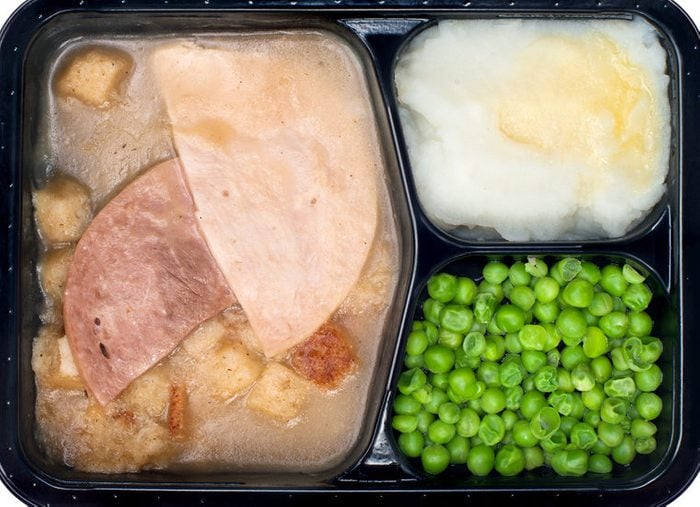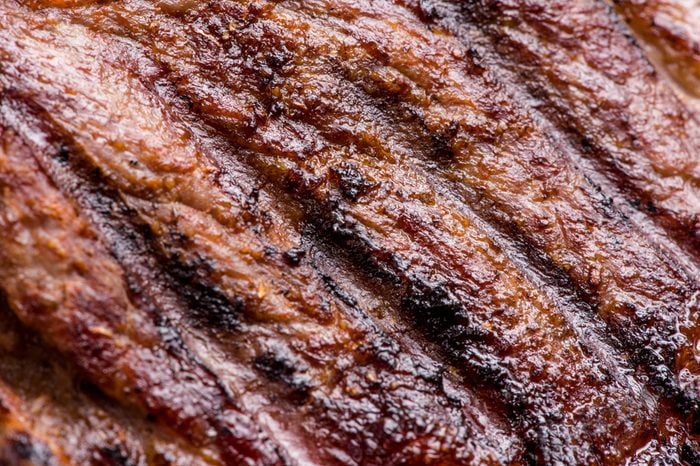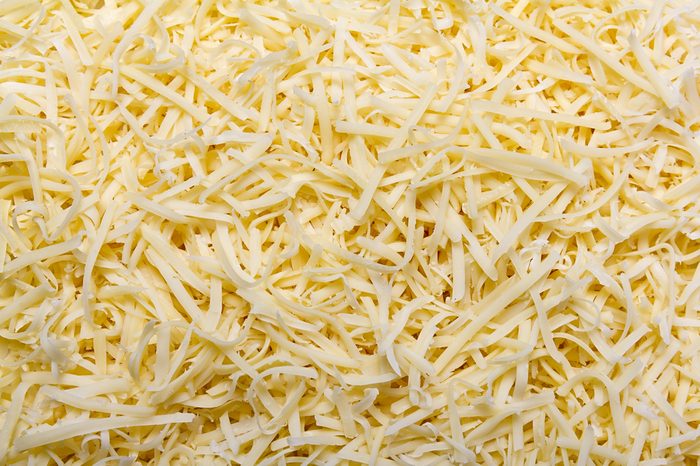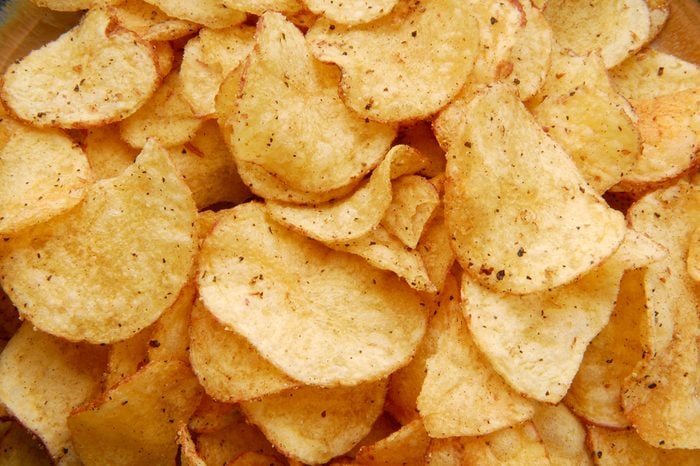The National Institute of Diabetes and Digestive and Kidney Diseases says that up to 42 million Americans go to the bathroom less than three times a week. It’s important to eat well if you want to keep your bowel movements regular. Eating the wrong foods can make your constipation worse.
Constipation is a common digestive issue that affects people of all ages. It occurs when you have infrequent bowel movements or difficulty passing stools. You may be constipated if you have less than 3 bowel movements per week and your stools are hard, dry, and painful or difficult to pass.
Constipation has many possible causes, including dehydration, lack of fiber in your diet, certain medications, and various medical conditions. Some research also suggests that eating high-fat meats like pork can contribute to constipation.
This article explores how pork may impact your digestive health and whether limiting pork intake can help relieve constipation
How Does Pork Impact Digestion?
Pork contains significantly more fat compared to other lean protein sources like chicken breast and fish. For example, a 3-ounce (85-gram) serving of pork loin contains 4 grams of saturated fat, while the same amount of chicken breast has just 1 gram (1).
Diets high in saturated fat have been linked to slower digestion and infrequent bowel movements (2),
This is because fat slows down the movement of food through your digestive tract. Slower transit time allows more water to be absorbed from your stool, resulting in harder, drier poop that’s difficult to pass (3).
Furthermore, pork is high in protein but contains little to no fiber. Most cuts of pork have less than 1 gram of fiber per serving (1)
Fiber adds bulk to your stool, softens it, and speeds up transit time through your intestines (4). Without adequate fiber, stools can become dry and difficult to pass.
Lastly, some cuts of pork can be high in sodium, such as cured ham, bacon, and sausage. Eating too much sodium may increase fluid absorption in your colon, resulting in harder, drier stools (5).
Overall, the high fat, low fiber, and potentially high sodium contents of pork can make it more difficult to maintain regular bowel movements.
Fattier Cuts Are More Likely to Cause Problems
While all pork may contribute to constipation, fatty cuts are the most problematic. These include:
-
Pork belly: Very high in fat with up to 18 grams of saturated fat per 3-ounce (85-gram) serving (1).
-
Spareribs: Around 5–6 grams of saturated fat per 3-ounce (85-gram) serving (1).
-
Sausage: Can contain around 4–7 grams of saturated fat per 2-ounce (57-gram) link (1).
-
Bacon: Up to 2 grams of saturated fat per slice (1).
-
Ham: 1–3 grams of saturated fat per 2-ounce (57-gram) serving (1).
On the other hand, leaner cuts like pork tenderloin and pork chops have around 2 grams or less of saturated fat per serving (1). They’re less likely to cause digestive issues.
In general, the higher the fat content, the more a pork product may contribute to constipation. If you do choose to eat fattier cuts, be sure to balance them with plenty of high fiber foods and stay hydrated.
Other Common Constipation Triggers
While pork can be a culprit, many other foods are linked to constipation, including:
Dairy products: The fat, lactose, and proteins in dairy may delay digestion. Try sticking to low fat options like Greek yogurt and limit cheese, cream, and whole milk (6).
Eggs: Their low fiber, high protein contents can slow down your digestive tract. Enjoy eggs in moderation and pair them with veggies or whole grains (7).
Packaged snacks: Chips, pretzels, cookies, and crackers are often low in fiber. Opt for high fiber snacks like fruits, vegetables, nuts, and popcorn.
White bread and pasta: Made with refined flours, these processed carbs lack the fiber your body needs to stay regular (8). Choose 100% whole grain options instead.
Sugary foods: Candy, cake, pie, and other sweets are low in fiber and can cause abrupt blood sugar spikes and crashes, potentially disrupting digestion (9). Limit added sugars and opt for naturally sweet fresh fruits.
No single food always causes constipation, but these items, in addition to fatty pork, are more likely to contribute to problems. Keeping your overall diet balanced with fiber-rich plant foods can help counteract any digestive issues.
Tips to Relieve and Prevent Constipation
Constipation usually isn’t serious and there are many ways to help get things moving again, including:
-
Eat more fiber: Aim for 25–35 grams per day from vegetables, fruits, beans, lentils, whole grains, nuts and seeds (10).
-
Stay hydrated: Drink plenty of water and limit dehydrating caffeinated and alcoholic beverages.
-
Exercise more: Aim for at least 30 minutes per day to keep your digestive system active.
-
Reduce stress: Try relaxing activities like yoga, meditation, or taking a warm bath.
-
Consider probiotics: These healthy gut bacteria may improve stool frequency and consistency (11).
-
Ask your doctor about medications or supplements: Fiber supplements, stool softeners, laxatives, or prescription medications may provide relief if diet and lifestyle changes are not enough.
Be sure to see your doctor if you experience bloody stools, continuing issues after making dietary changes, or if constipation is accompanied by vomiting, severe pain, weight loss or other worrisome symptoms.
The Bottom Line
Pork, especially higher fat cuts, may contribute to constipation due to its high fat, low fiber and sodium contents. However, no single food is guaranteed to cause issues. Focus on getting adequate fiber from whole plant foods, staying hydrated, and limiting processed items like sugary desserts and refined grains.
Most cases of constipation can be managed at home with simple diet and lifestyle tweaks. But seek medical advice if symptoms are severe or don’t improve with changes. With the right dietary precautions, pork can still be enjoyed even if you’re prone to constipation.

Potato chips, crackers, and other processed foods
Processed foods, like potato chips, saltines, and some breakfast cereals, lose a lot of their nutrients and can make constipation last longer. Ziegelbaum says to choose whole grains over refined ones and to buy whole grain bread with at least 3 grams of fiber per serving. If you have trouble going to the bathroom, try cooking turkey burgers, casseroles, or breaded chicken with oats instead of breadcrumbs. Oats are an excellent source of fiber and can prevent constipation from getting worse. You can avoid foods that cause constipation and eat these 7 ancient grains instead.

Avoid these foods that may make constipation worse
Constipation is something almost everyone deals with at one point or another. Although 27 percent of adults experience it, there are ways to avoid constipation. These home remedies for constipation will help you feel better if you stay away from the foods below.

Even though processed frozen foods are very convenient, they often lack nutrients, like the fiber your body needs to keep your bowel movements regular. (Adults need about 25 to 38 grams of fiber each day. A lot of processed frozen foods also have added sugars, fats that are bad for you, and preservatives that make them harder to digest. RD Linzy Ziegelbaum of LNZ Nutrition in Syosset, New York, says, “Foods that are high in fat tend to be low in fiber.” “When a food is high in fat your body digests it slower. ” Looking to add more fiber to your diet? Check out these foods that are natural laxatives.

Choosing foods with high fiber and low fat content is the best way to stay regular. No meat, not even chicken, turkey, or pork, has fiber. But red meat is the fatty one, which makes it the hardest to digest. “Since red meat is higher in fat than other meats, it may cause more constipation,” says Ziegelbaum. “Fish, chicken, and turkey don’t have fiber, but they do have less fat, which helps them digest faster. ” Don’t miss these other surprising reasons you’re constipated.

“Dehydration can back you up, because you need to have fluids to digest your meals,” Ziegelbaum says. Alcohol can cause dehydration. Even if you only drink one or two drinks at night, you should still drink enough water to keep your body hydrated. A lot of dietitians say that you should drink eight cups of water every day, but this can change based on your weight, height, and level of activity. Find out 7 ways to avoid constipation when you travel.

High-fat dairy products including whole milk, cream, and cheese contain no fiber and can often make constipation worse. Limiting dairy consumption and adding more whole grains, vegetables, and fruits into your diet may help relieve constipation. According to Ziegelbaum, bloating and gas can often accompany constipation and can be symptoms of lactose intolerance. Try these natural remedies for constipation.

Stop Constipation Now By Avoiding These 12 Foods That Can Cause Constipation
FAQ
What meats cause constipation?
What meat is best for constipation?
What simple trick empties your bowels?
Does red meat cause constipation?
Choosing foods with high fiber and low fat content is the best way to stay regular. No type of meat from chicken to turkey to pork contains fiber, but red meat is the fattiest, making it the most difficult to digest. “Since red meat is higher in fat than other meats, it may cause more constipation,” says Ziegelbaum.
Do processed foods cause constipation?
Similarly, studies suggest that foods high in sugars and saturated fats can worsen constipation because they slow down your digestion and ability to pass stool. Some processed foods can also be low in fiber content. Fiber is a type of carbohydrate that your body isn’t able to digest.
Do fried foods cause constipation?
Fried foods, particularly deep-fried foods, are high in saturated fat. Diets high in saturated fat are known to increase constipation, particularly in older adults, compared to diets low in saturated fat. To circumvent a bout of constipation, make an effort to avoid: Many people report that dairy products make them constipated.
What foods cause constipation?
When you’re constipated, highly processed foods, fast food, dairy products, and high-fat meats that are low in fiber but high in saturated fat, sodium, and sugar can worsen symptoms.
